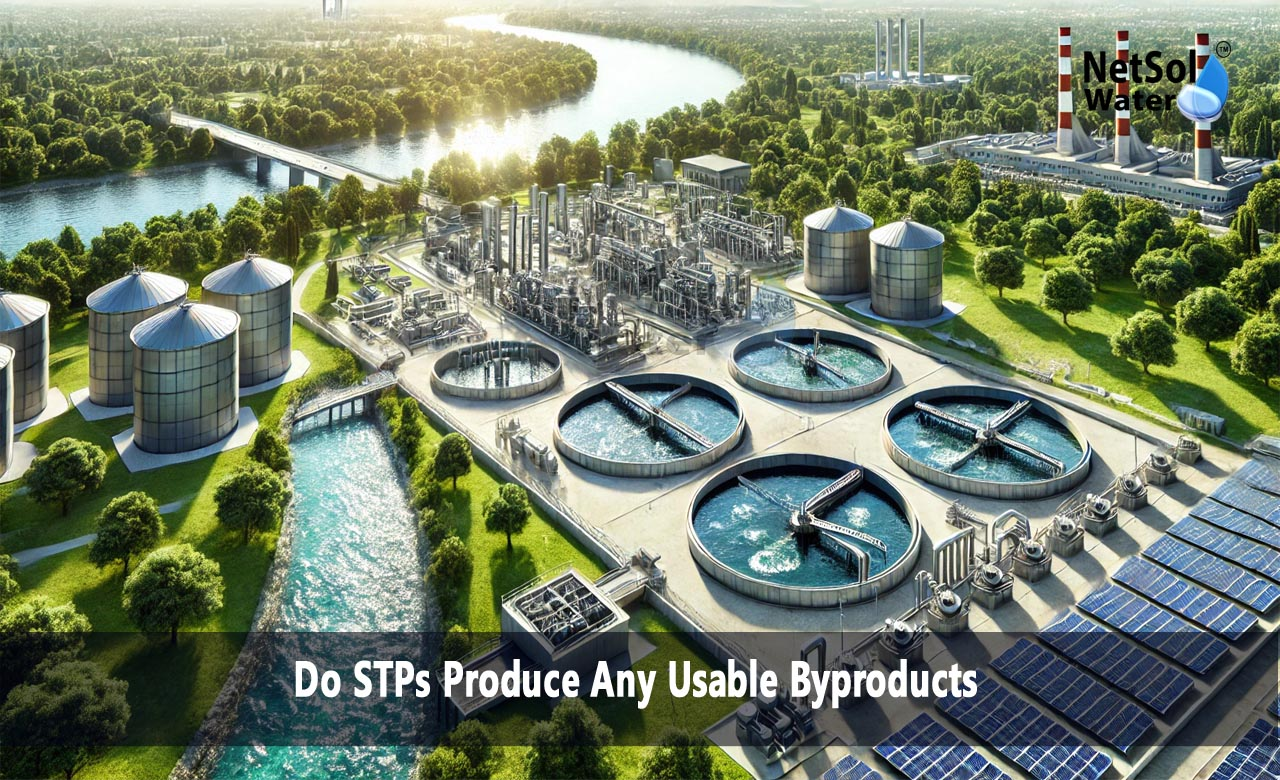Do STPs Produce Any Usable Byproducts?
Treated water plants can yield materials for energy farms and soil care. They can also supply water for safe reuse. Netsol Water designs systems that help clients gain these byproducts. STPs produce any usable byproducts that add real value for industry and agriculture. These plants can convert sludge into soil amendments and compost. They can generate biogas in controlled digesters to power onsite equipment or feed local grids. They can capture nitrogen and phosphorus as solid fertilizers. They can reclaim treated water to irrigate green spaces or cool industrial systems. Each of these byproducts can offset costs and reduce waste footprints.
Sludge Conversion
Sludge drives many reuse options in STPs. This feedstock forms after water moves through each tank. Let us have a look at some ways we can use it.
Agricultural Compost Use
This path can bring new life to fields. Plants can grow strong in soil rich in compost. Farmers can add treated sludge to dry soils. This mix holds moisture well. It also feeds plants with needed minerals. Netsol Water tests each batch for safe use. They guide farmers on how much to spread. This step protects crops and keeps land healthy.
Read: Sewage Treatment Plant Manufacturer
Soil Conditioner
Farms and gardens need soil that drains right. Treated sludge can change poor soils into rich beds. This mix loosens clay soils so roots can spread. It also fills sandy soils so they hold water. Netsol Water shows clients how to spread the mix by weight. This process helps small farms and big plots alike. It also cuts the need for chemical enhancers.
Biogas Generation
Biogas supply can power a plant or feed a grid. Many STPs use heat and microbes to make gas from sludge. Let us have a look at some stages in this path.
Anaerobic Digesters
Each digester forms gas in a closed tank. Bacteria eat the sludge in dark warm vats. This work splits waste into gas and a safe residue. Netsol Water builds digesters that run with little fuss. They also add valves to hold pressure. This design keeps gas safe and tanks sealed.
Energy Output
Plant staff can collect the gas to feed a burner or a generator. This move can light lamps and run small motors. Some sites can sell extra gas to a grid. Netsol Water sets meters to track each drop of gas. This step shows how much power the plant can save. It also cuts plans to buy fuel.
Nutrient Recovery
Fertilizer use can cut cost for farms and green spaces. STPs can capture nitrogen and phosphorus from water. Let us have a look at some techniques that make this work.
Nitrogen Capture
Plants free nitrate in one tank. Then they feed it to bacteria that form safe solids. These solids dry and become a white powder. It can feed farm crops. Netsol Water adds filters that trap the powder. They also test for purity to meet farm rules.
Phosphorus Harvest
Phosphorus sits in sludge solids. Many plants treat sludge with lime and heat. This step dissolves the solids and frees the nutrient. It then falls out as crystals. Farmers can buy these crystals to boost soil. Netsol Water fits tanks that hold the crystals in place. They then ship the nutrient for sale.
Reclaimed Water Applications
Reclaimed water can serve parks and roads. It can feed cooling towers in power plants. Let us have a look at some areas that gain from this resource.
Urban Irrigation
Cities can use treated water in green belts. Park staff can water lawns and tree rows. This move saves fresh clean water for drinking. Netsol Water fits pumps and pipes for a safe loop. They also add filters to keep the water clear.
Industrial Cooling
Factories can use this water to cool machines. A closed loop keeps the water in tanks. It runs through heat exchangers and then returns to the plant. This use cuts fresh water need. Netsol Water delivers skid units that plug in fast. They also train staff to run the loop with no leaks.
Conclusion
This blog shows how STPs produce any usable byproducts in many paths. The list can grow with new tech and trends. Netsol Water stands as a leading manufacturer in each step of this process. They design plants that turn waste into soil aids energy gas and clean water. If you want to know more about how STPs produce any usable byproducts trust Netsol Water to guide you. Contact our team today to request a custom consultation.
Contact Netsol Water at:
Phone: +91-9650608473, Email: enquiry@netsolwater.com



